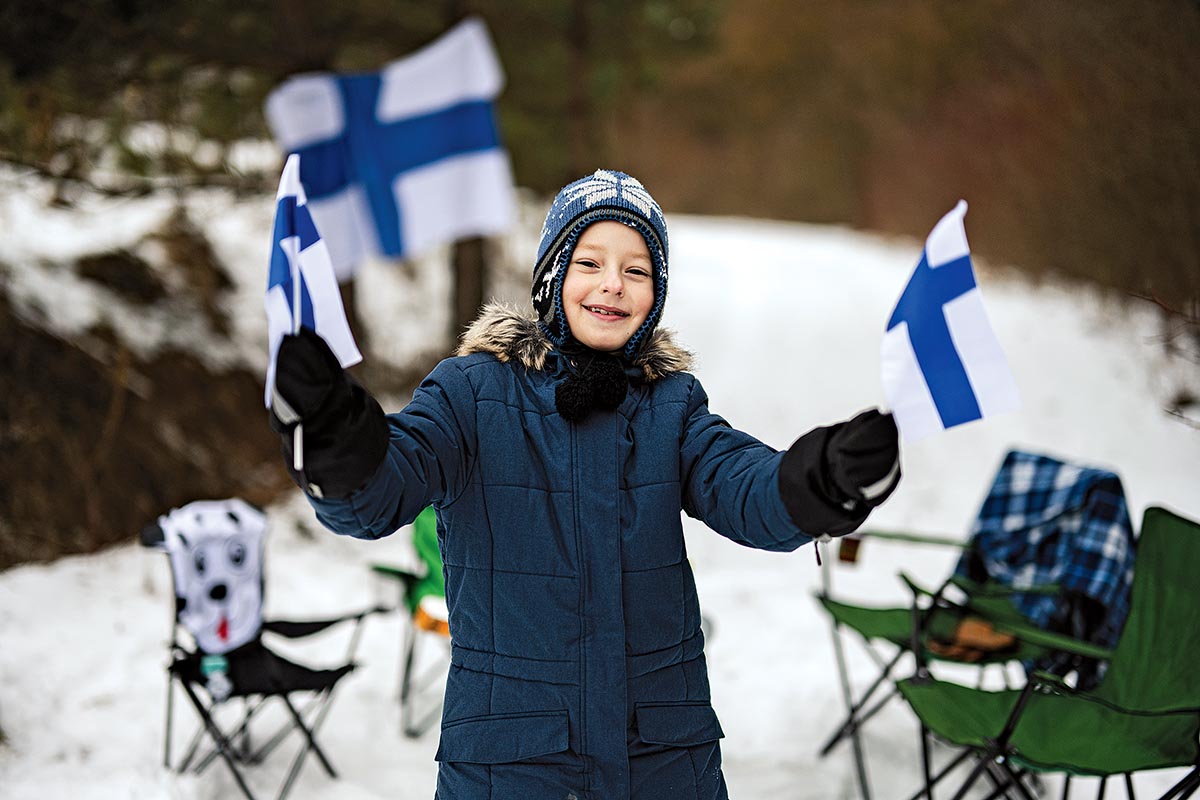Finland has one of the highest-quality education systems in the world, as shown by its consistently high rankings in third-party international studies. Finland has achieved this success despite only spending slightly more than the average of OECD countries per student
Finns believe in their education system, which is built on the belief that the nation can only utilise its full human and economic potential if every citizen has the opportunity to realise their personal potential. It seems that they are right to do so, as their education system and pedagogical model is the world’s most successful.
The conference on Finnish education entitled “Drivers of Change – New Roles in Education”, which was jointly organised the Embassy of Finland in Belgrade, the Nordic Business Alliance, the “Education for Serbia” Foundation and Uni Credit Bank, was held at the Palace of Serbia in February. Experts from Serbia had an opportunity to better acquaint themselves with the Finnish educa tion system and pedagogical model, which are among the world’s most successful.
The conference was opened by Finnish Ambassador to Serbia H.E. Kimo Lahdevirta, who pointed out that Finns believe in their country’s education system, which is built on the belief that the nation can only utilise its full human and economic potential if every citizen has the opportunity to realise their personal potential. Dr Raimo Salo, an expert in the professional development of teachers from the Faculty of Education in Oulu, addressed conference participants with the aim of presenting Finnish experiences in terms of providing the conditions required for the professional development of teachers. He emphasised that schools for the professional development of teachers have an important place in teacher education and that quality mentoring plays a key role in supporting professional development.
EDUCATION IS FREE OF CHARGE
Finnish schools and education methods represent a popular topic in news stories, and the whole world knows that Finland has one of the best education systems on the planet. Finland established its modern compulsory education system in 1921, proving that the development of an entire education system takes time.
Finland’s love affair with education began just over a century ago, in 1921, with the creation of the modern compulsory education system and the philosophy of education for all. The curriculum and organisation of the education system have been updated and reformed several times since. A significant reform began in 1972, with the adoption of the comprehensive school system, meaning that basically everyone has the same opportunity to receive a good quality education in the school nearest to their home.
Education is free of charge, from pre-primary school to higher education. The goal is for everyone to have an equal opportunity to receive a high-quality education regardless of their family’s social or economic background.
Quality, efficiency, equality and internationalisation are the keywords of the Finnish education system
The school meal system plays an essential role in Finland’s education system. Equal access to education and free school meals have been key factors in supporting economic growth and transforming Finland into a knowledge-based society. School meals were initially introduced to address post-war poverty and malnutrition. At the time, Finland was also resettling thousands of internally displaced people and orphans. The law to provide meals free of charge for all pupils came into force nationwide across Finland in 1948. Finland has been offering free school meals to all schoolkids for more than 70 years – making it the world’s longest-running free-of-charge school feeding programme.
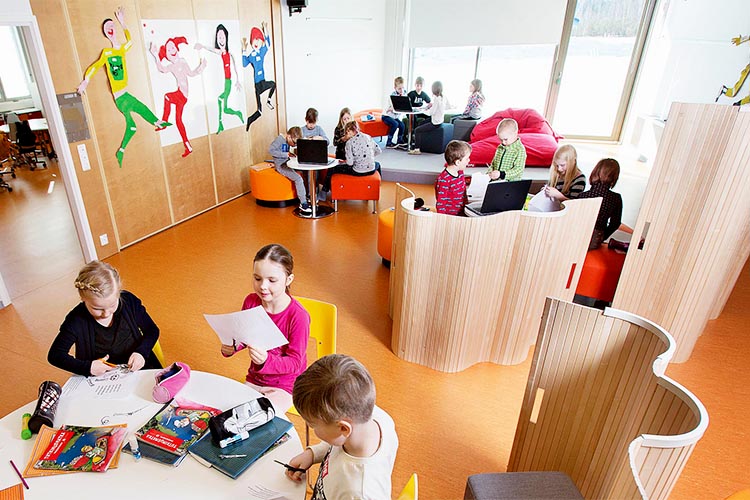
Early childhood education in Finland is about play and social interaction. A strong early beginning in learning promotes the development of cognitive, social, language and numeracy skills, as well as a motivation and joy to continue learning. Finnish schools place an emphasis on the child. For example, school days are short and pupils take breaks between classes, spending time outdoors, while activities like sports, art and music are considered very important. Finnish children begin school later in life, spend less time in the classroom and have less homework than kids in many other countries, yet they still produce excellent outcomes.
TEACHERS ARE VALUED IN FINNISH SOCIETY
Teachers enjoy broad autonomy and have flexibility to organise their own teaching. In the late 1970s, the length and rigour of teacher training was increased to meet the needs of learners. Teachers were required to earn master’s degrees in 1979. Both form tutors and subject teachers are required to have a master’s degree. Teachers are valued in Finnish society. They are highly educated and trusted to do what is best for every child. Personalised help is common: the Smithsonian notes that nearly 30% of Finnish children receive some kind of special help during their first nine years of school. Under the Basic Education Act, besides providing teaching within the framework of the curriculum, school pupils also have the right to receive guidance counselling and sufficient support for learning and school attendance throughout their comprehensive school years. Support must be provided as soon as the need is detected.
If the enhanced support provided to a pupil is insufficient to help them cope with schoolwork, an administrative decision is made, based on a pedagogical assessment, to provide special needs support. An individualised educational plan (IEP) is drawn up for the pupil and must detail the provision of teaching and other support specified in the decision to provide special needs support.
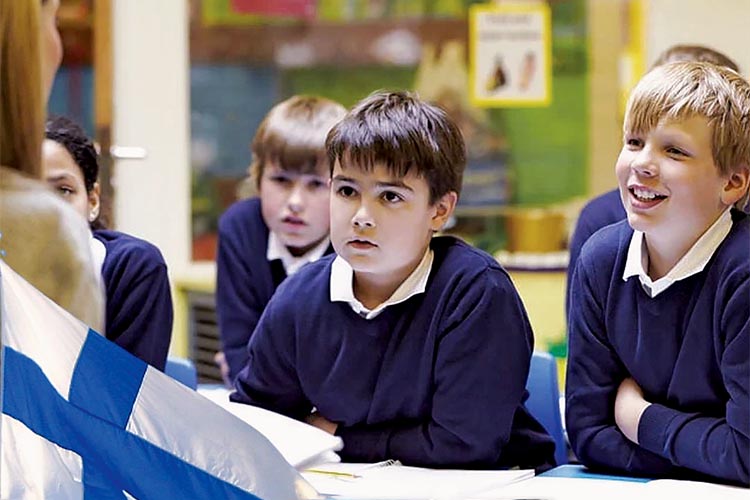
Special needs support consists of special needs education and other support needed by the pupil as referred to in the Basic Education Act. Special needs education and other support received by the student form a functional and systematic whole, wherein the support of the child’s parents or guardians are important, as are multi-professional cooperation and individual guidance.
Differences in the learning outcomes of different schools are minor. Schools are given a great deal of autonomy. They are neither micromanaged nor tightly controlled from a centralised authority. In fact, there is a high level of trust and division of responsibilities between the national and local authorities.
FINLAND ENSURES EQUAL OPPORTUNITIES
Quality, efficiency, equality and internationalisation are the keywords of the Finnish education system. Education has made Finland into a world-class, knowledge-based society, in which higher education is provided by 14 universities and 24 universities of applied sciences. These institutions offer over 450 degree and non-degree programmes in English.
Finland’s education system began receiving worldwide attention in the 2000s, thanks to high international rankings. Additionally, Finland achieved this result while spending only marginally more per student than the OECD average and much less than some countries. This prompted many countries to seek to work with Finland to develop their education systems.
The goal is for everyone to have equal opportunity to receive a high-quality education, regardless of their family background
Finnish higher education is often praised as being safe, well-functioning and close to nature, but also for having many high-quality degree programmes in English. Finnish higher education institutions are autonomous, despite being largely funded by the state. When it comes to student satisfaction surveys, Finland stands out as Europe’s number one place for international students. In a study conducted by global platform StudyPortals, Finland was given an average satisfaction rating of 9.2 out of 10. Finland also came top in the Student Satisfaction Awards 2014, gathering positive reviews of Finland’s academic standards from nearly 7,000 international students. Highly positive feedback was also given for services provided for international students. Finland believes that international cooperation in education is essential. Finnish companies and institutions eagerly seek international partners in order to receive mutual assistance in improving.
FINNS ALWAYS SEEK A PRACTICAL SOLUTION
Degrees from universities of applied sciences generally cover 210–240 credits (ECTS), meaning 3.5–4 years of full-time study for a bachelor’s degree and 60–90 credits (ECTS) achieved within 1–2 years for a master’s degree. At universities, students can study for bachelor’s and master’s degrees, as well as postgraduate degrees leading to a Ph.D.
Finns always seek a practical solution – turning setbacks into steps forward. Problem-based learning is at the core of the tuition offered by most Finnish universities and universities of applied sciences. Teaching methods are far from authoritarian, with learning being based on discussion, student participation and working together.
A thriving Education Technology (Ed- Tech) sector has developed in recent years, merging Finnish software and education strengths. This is particularly important in the COVID-19 era, when distance and personalised learning have become more important.
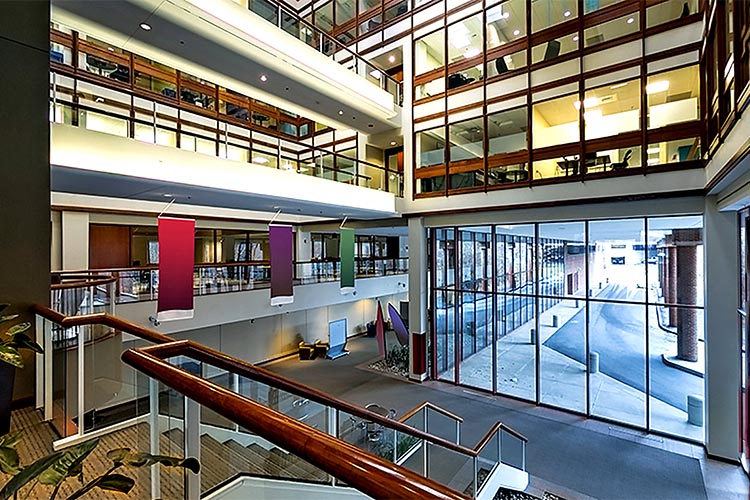
COVID-19 demonstrated the resilience and versatility of the Finnish education system. In the spring of 2020, Finland closed almost all schools and distance learning was implemented with minimal interruption. During physical school closures, pupils were asked to attend classes online, complete school tasks independently and submit them to teachers electronically.
All Finnish schools have tutors and mentors, as well as other peer support mechanisms for using digital tools, which proved crucial during the pandemic. While the ability of teachers to transfer their curriculum online proved even better than expected, it is clear that distance learning cannot currently replace classroom teaching fully.
The reform of the Finnish education system continues to this day. In 2021, the age of compulsory education system increased from 16 to 18. All young Finns are required to have access to, and to enter, secondary level education.
AND NOW SOME INTERESTING FACTS…
* Popular magazine The Economist ranked Finland No.1 in their Educating for the future index (2019), and the OECD ranked Finland No.2 in the world for the highest performing graduates (2019).
* Finnish education exports represent a small sector of the economy, yet they have grown 49% in the last five years, according to Education Finland. * Nine Finnish universities have been ranked among the world’s best according to The Times’ list (2020).
* Finns eagerly take advantage of their education system. The percentage of the population with a bachelor’s degree is the 4th highest in Europe, while the percentage of the population with a Doctorate is 3rd, according to Eurostat.
68.7% of adult Finns participated in informal learning during the past year, compared to the EU average of 59.9%, according to Eurostat.
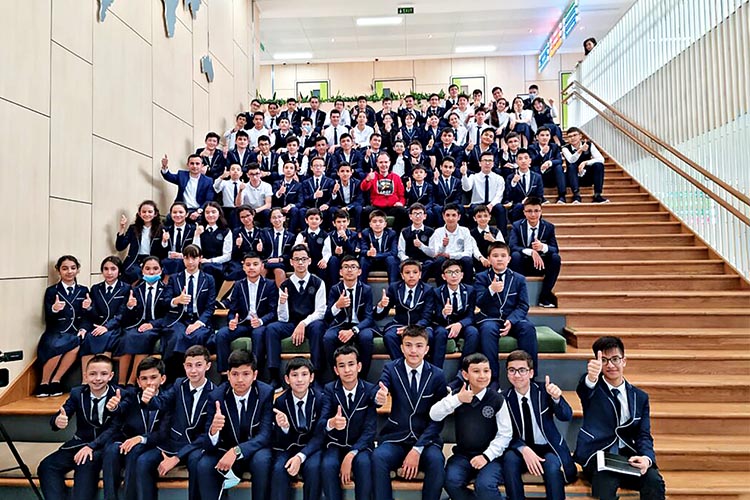
* 73% of Finns aged 15 or over have completed a post-comprehensive level qualification, while 36% have completed a tertiary level qualification, according to the Ministry of Education and Culture.
* Finland has over 400 degree programmes taught in English, including 266 master’s- level and 62 doctorate-level, according to the Ministry of Education and Culture.
* The most popular source countries for foreign exchange students in Finland are Germany and France, according to the Ministry of Education and Culture.
* 90% of teachers in Finland are satisfied with their work, while 92% say the positive aspects of their job outweigh the negative ones, according to a survey commissioned by the Ministry of Education and Culture.
* Finland has been ranked the happiest country in the world for several consecutive years, according to the UN Happiness Report.
* Education Finland maintains a large list of companies that can be cross-filtered by fields of expertise and educational level.
